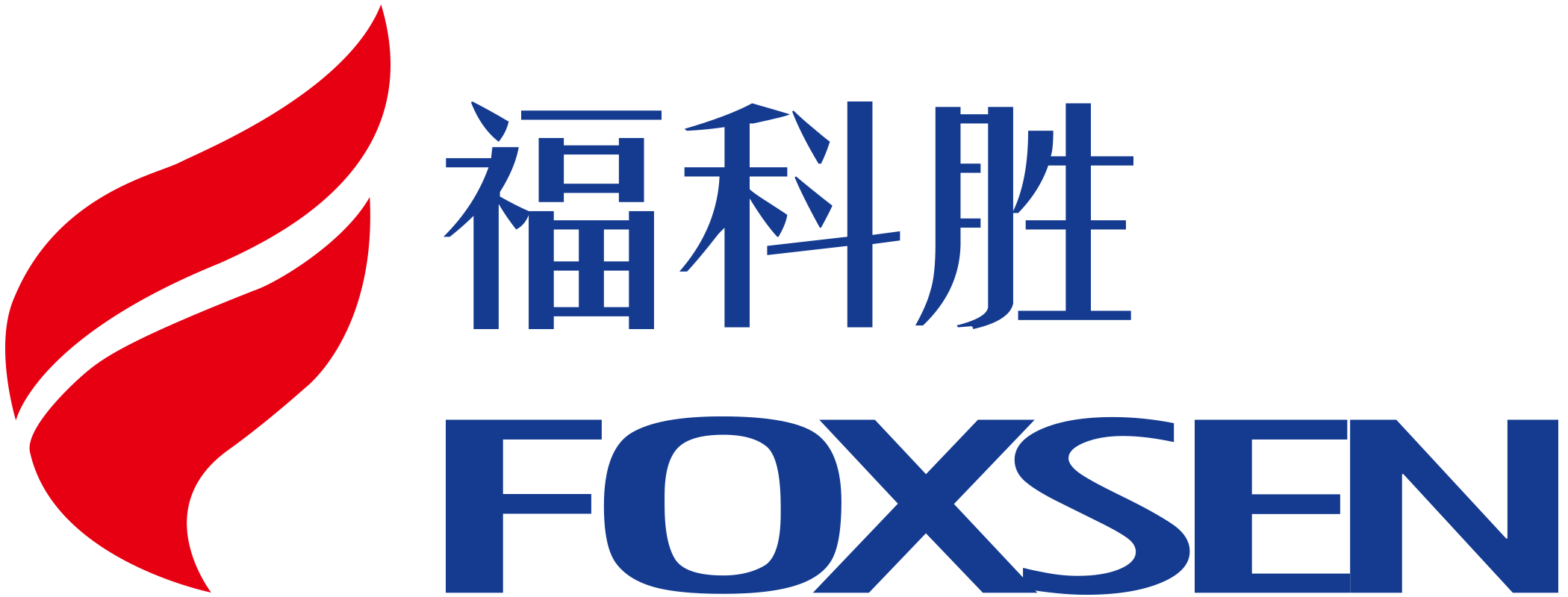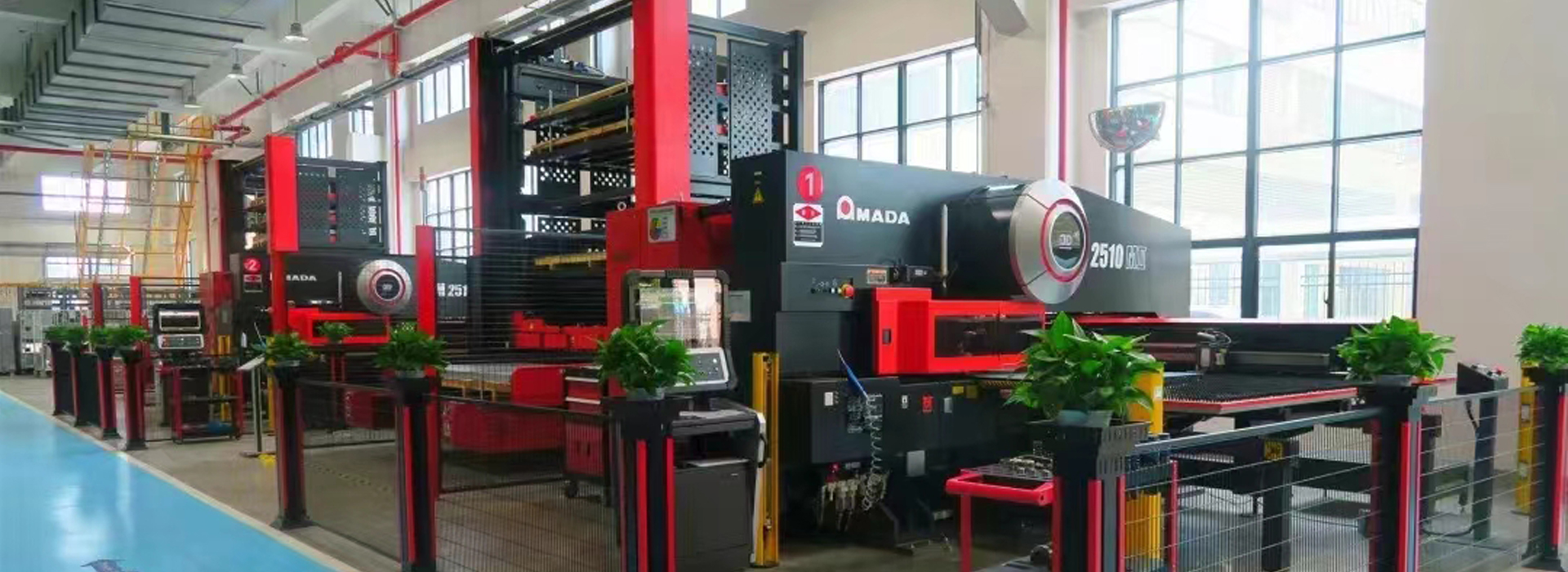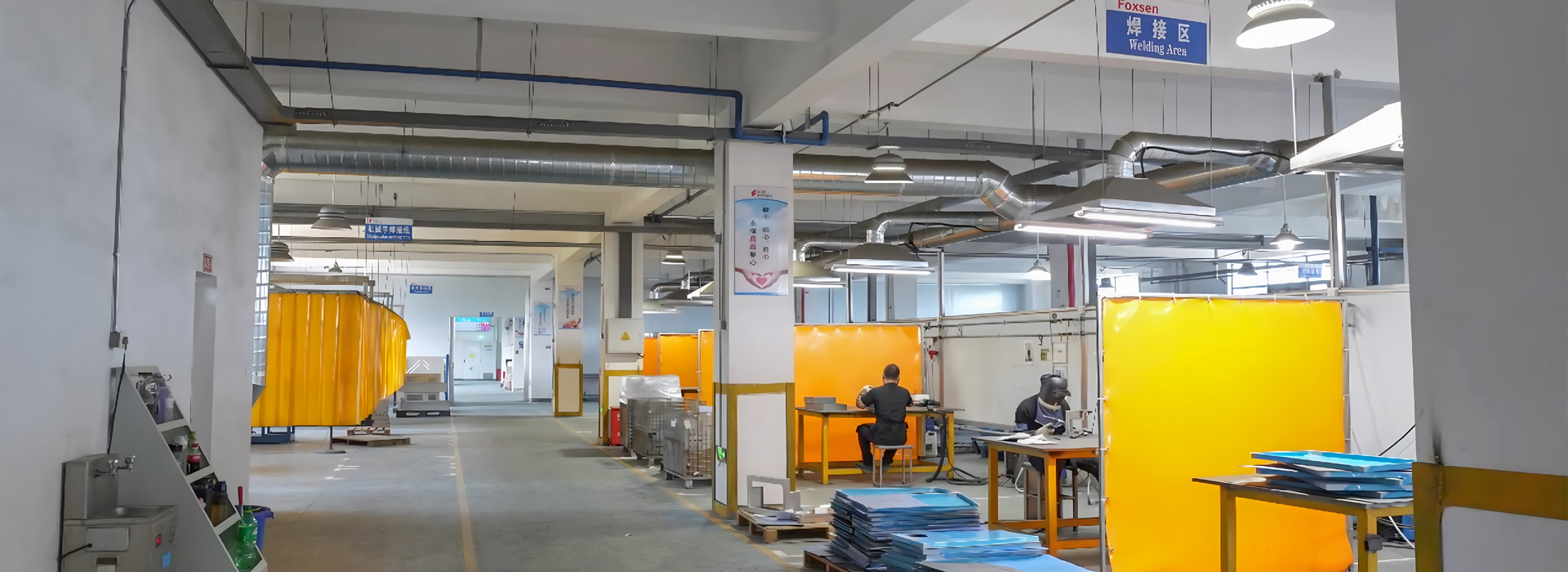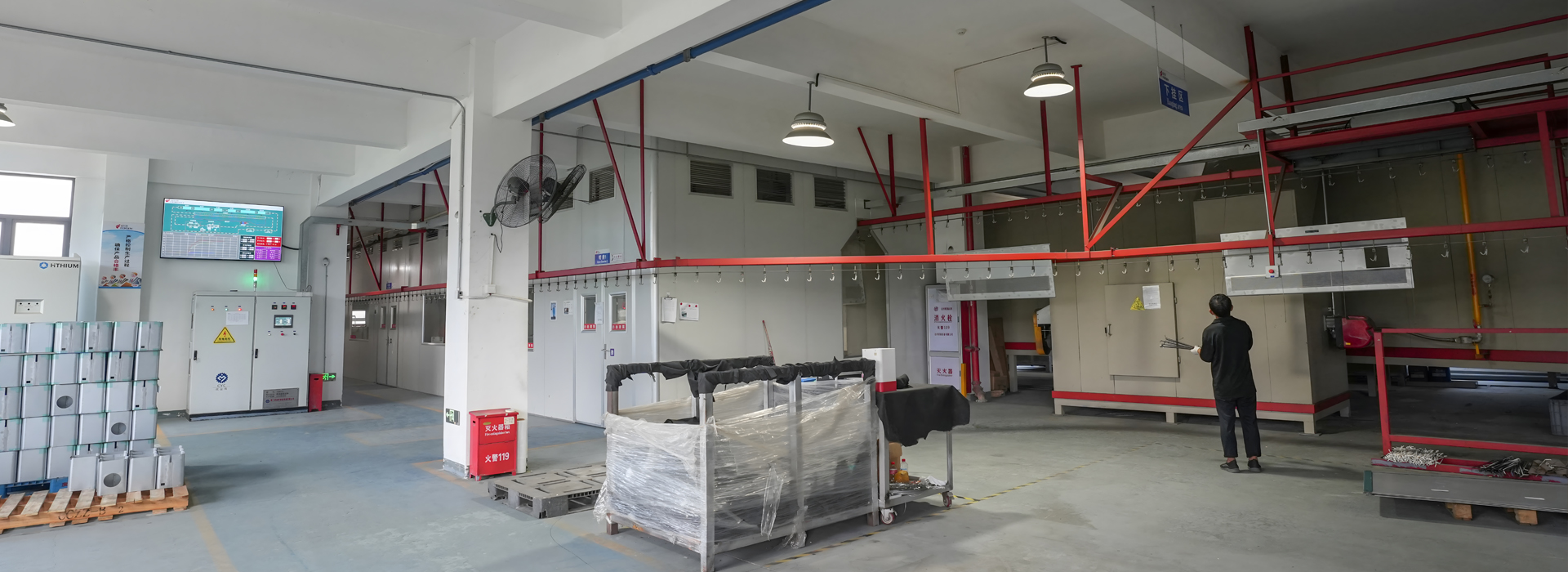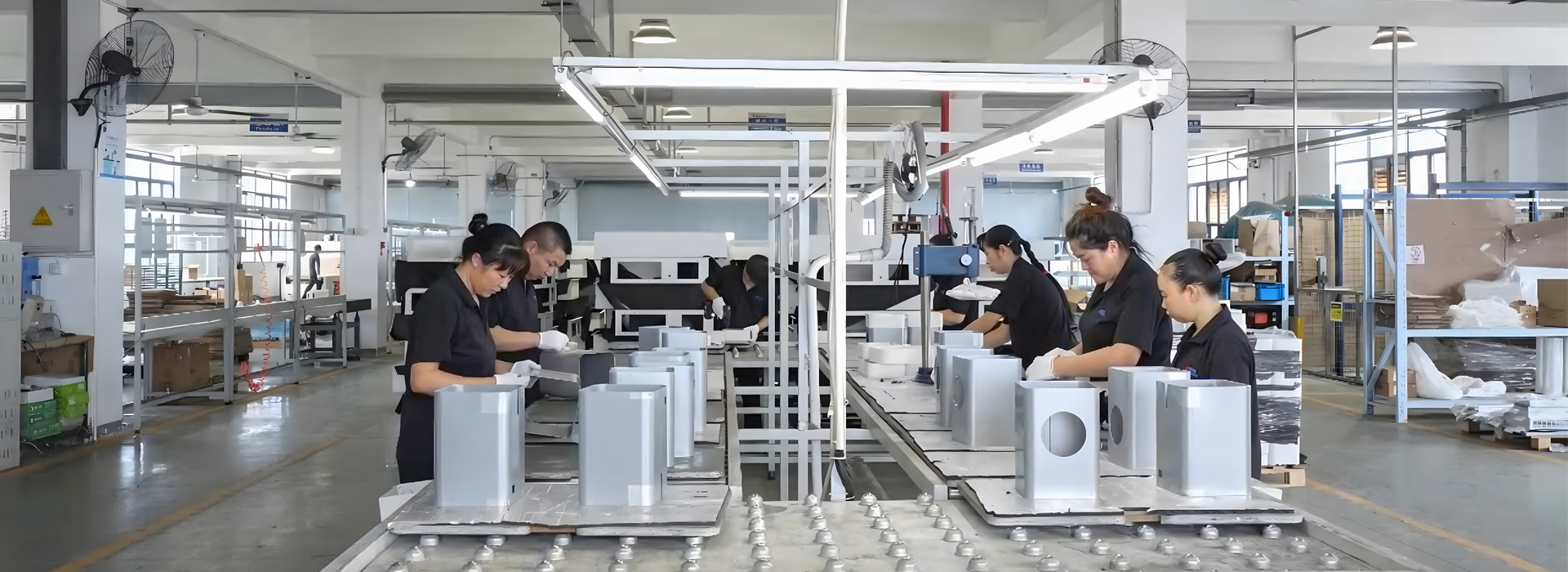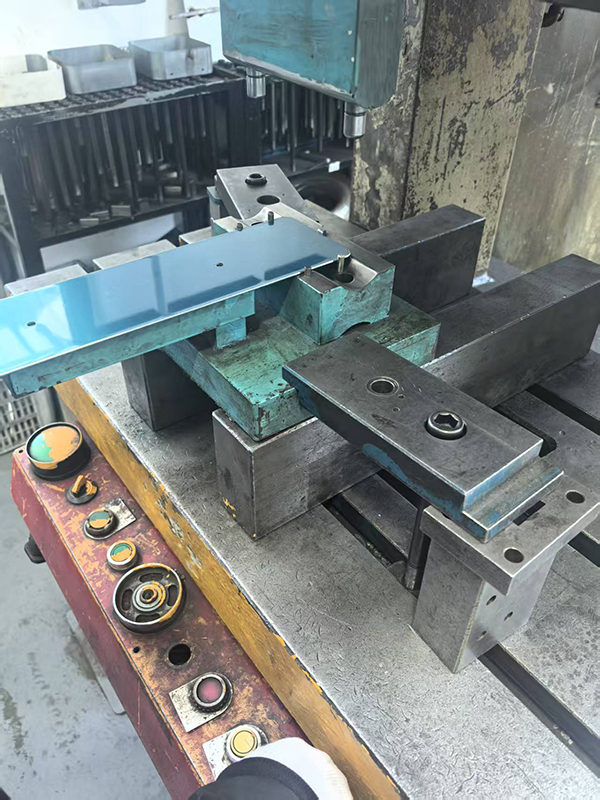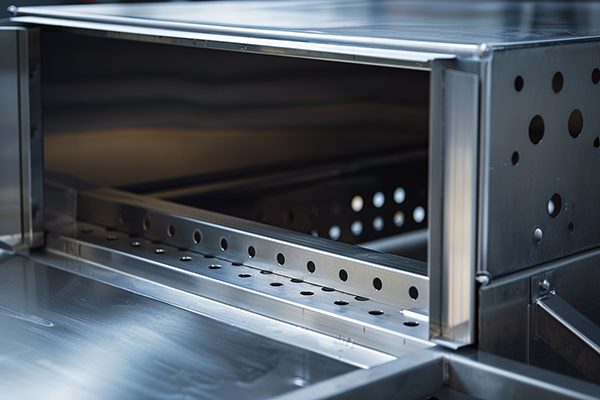
Custom sheet metal enclosures are protective cases for delicate parts. They keep electronics, medical tools, and machines safe from harm. This helps them work well and last longer. These enclosures are popular because they can be made to fit perfectly. For example, the global market for sheet metal in electronics was $5.2 billion in 2023. Experts think it will grow to $8.7 billion by 2032. This growth shows more people want electronic gadgets and new technology. Whether for electronics or healthcare, these cases are strong and made to meet specific needs.
Key Takeaways
Custom sheet metal enclosures keep fragile parts safe from harm. This helps electronics and medical tools work better and last longer.
Picking the right material, like stainless steel or aluminum, is key. It makes enclosures strong and useful in different places.
Custom designs let enclosures match exact needs. This improves how they work and keeps things safe in fields like electronics, healthcare, and space.
Custom enclosures might cost more at first. But they save money later by needing fewer repairs and making equipment last longer.
Choosing a trusted maker like Foxsen gives you top-quality enclosures. They are accurate and meet industry rules and special needs.
What Are Custom Sheet Metal Enclosures?
Definition and Purpose
Custom sheet metal enclosures are special cases made for specific needs. They protect delicate parts from damage, keeping them safe and working well. You can find these enclosures in electronics, healthcare, and telecom industries. They do more than just protect. They also improve performance by managing heat and blocking electromagnetic interference (EMI).
These enclosures are very important in factories and industrial areas. For instance, they keep electrical parts safe in automated machines and power systems. Their strong build helps them handle tough conditions like shaking, dust, and water. This makes them vital for keeping industrial systems running smoothly.
Key Features of Custom Sheet Metal Enclosures
Custom sheet metal enclosures have many useful features. Here are some of their main qualities:
Durability: They are strong and last in tough environments.
Customization: You can design them to fit specific sizes and needs.
Safety: They keep people safe from dangerous machines and accidents.
Thermal Management: They help parts stay cool and avoid overheating.
EMI Shielding: They stop electromagnetic interference from affecting devices.
These features make custom sheet metal enclosures both useful and good-looking for the equipment they protect.
Common Materials Used in Manufacturing
The material used affects how well the enclosures work. Makers choose materials based on where and how they will be used. Here’s a simple table of materials and their features:
In healthcare, stainless steel is common because it’s easy to clean and lasts long. For factories, heavy-duty steel or aluminum works well under stress and heat. Outdoor use needs materials like fiberglass or UV-resistant plastics to handle weather and sunlight.
Picking the right material ensures your custom sheet metal enclosures work as needed.
Key Applications of Custom Sheet Metal Enclosures
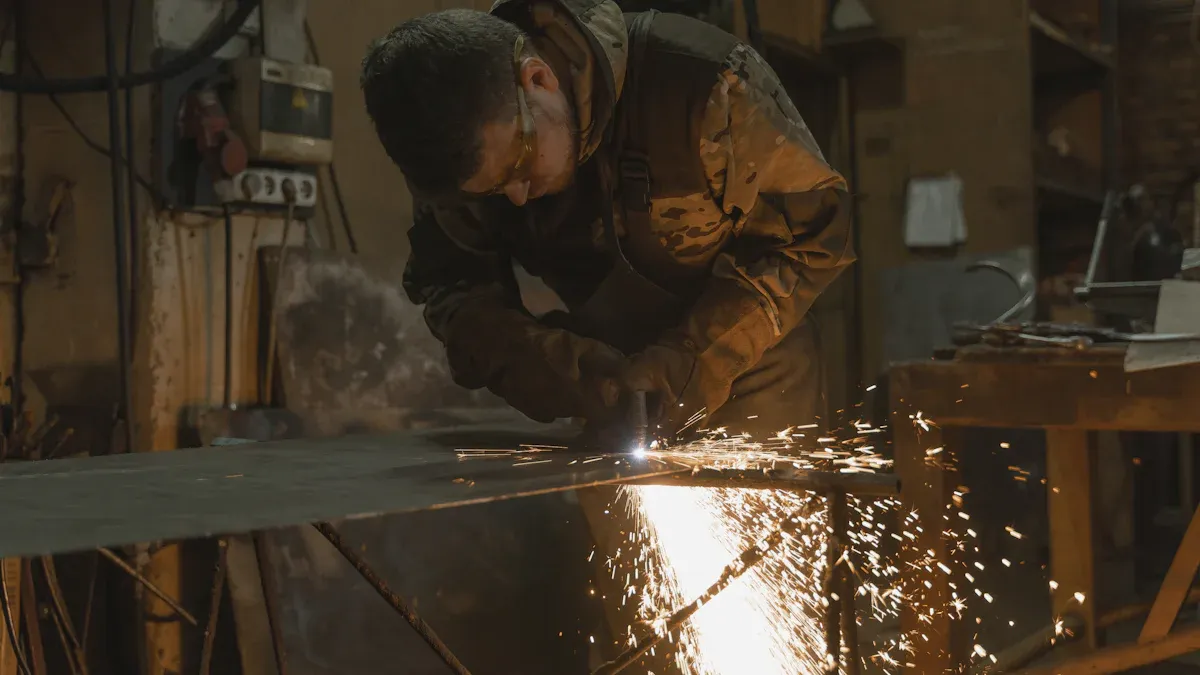
Electronics and Technology
Custom sheet metal enclosures are important for electronics and technology. They keep parts like circuit boards and processors safe. These enclosures block dust, moisture, and electromagnetic interference (EMI). They also help cool devices, making them work better and safer.
You can see these enclosures in servers, routers, and gadgets. Aluminum is a common choice for servers because it is light and doesn’t rust. Custom sizes and vents make them fit perfectly. This helps devices last longer and work well.
The need for these enclosures is growing fast. By 2025, the market will reach $1.5 billion. It will grow 6% every year from 2025 to 2033. This shows how new tech like automation and green energy is spreading.
Industrial Equipment and Machinery
In factories, these enclosures protect machines and tools. They guard electrical parts and control panels from heat, shaking, and chemicals. This keeps machines running safely and smoothly.
Industries like food processing and manufacturing use these enclosures a lot. SPCC material resists rust, making it great for medical tools. SECC is safe for food, while SGCC is easy to shape for semiconductors.
Here’s a simple table of materials and uses:
Extra features like coatings and access points can be added. These improve how the enclosures work and look.
Medical Devices and Healthcare Equipment
In healthcare, these enclosures protect medical tools and devices. They keep parts clean and safe from germs. Stainless steel is often used because it is strong and easy to clean.
These enclosures are found in lab tools, surgical machines, and scanners. For example, Eabel’s stainless steel cases protect parts in food and drug factories. Badger Sheet Metal Works makes enclosures for switches that handle bad weather.
Custom designs make these enclosures fit devices perfectly. They include vents, exact sizes, and finishes for cleanliness. These features protect tools and help them work better for longer.
Telecommunications and Networking
Custom sheet metal enclosures are important for telecom and networking. They protect devices like modems, routers, and switches from damage. These enclosures also block electromagnetic interference, keeping equipment safe and reliable.
In telecom, keeping things organized and secure is essential. Sheet metal racks and cabinets store and protect important devices. They save space and improve airflow to prevent overheating. For example, cooling systems in enclosures help devices last longer.
Here’s how different parts help in telecom systems:
Custom enclosures can be made to fit exact sizes. They can include cable organizers and locks for extra security. This ensures your telecom setup stays strong and works well.
Aerospace and Defense Applications
In aerospace and defense, strength and accuracy are very important. Custom sheet metal enclosures protect parts in tough conditions like high altitudes and bad weather. They keep equipment working even under stress.
Military use requires strict rules like MIL-SPEC standards. These rules cover materials, precision, and rust resistance. For example:
Materials must handle extreme heat and pressure.
Precision ensures parts fit with other systems.
Rust resistance helps parts last longer in harsh places.
Manufacturers provide certifications to meet these needs, such as:
Material Certification: Confirms material quality and performance.
Certified Material Test Report (CMTR): Lists material details and specs.
Process Certification: Checks welding, painting, and plating quality.
Testing is also very important. Third-party checks, like First Article Inspection (FAI), confirm the size and strength of enclosures. This ensures they won’t fail when needed most.
Custom enclosures for aerospace and defense are built to last. They combine strength, rust resistance, and precise design to meet high standards. This gives you confidence that your systems will perform well.
Benefits of Customizing Sheet Metal Enclosures
Durability and Longevity
Custom sheet metal enclosures are made to handle tough conditions. You can pick materials like stainless steel to stop rust or aluminum for lightweight strength. This keeps your equipment safe and helps it last longer.
For example, in factories, machines face heat, shaking, and chemicals. Custom enclosures protect them from damage and reduce downtime. This also saves money on repairs over time. Designers think about material strength and easy building to meet current and future needs.
Tip: Strong enclosures cost more at first but save money later by avoiding frequent fixes.
Precision and Fit for Specific Needs
Custom enclosures are made to fit your equipment perfectly. This improves how well they work and keeps them safe. Tools like laser cutting and precise bending make sure the sizes are exact.
Here’s a simple look at quality standards:
These exact measurements make sure the enclosure fits and works well. Whether you need protection from dust, water, or interference, custom enclosures deliver high quality.
Adaptability to Unique Designs and Functions
Custom designs let enclosures meet special needs in different industries. For example, electronics may need vents, and telecom setups may need modular designs.
Here are some examples:
Enclosures for circuit boards help with cooling and protection.
Strong enclosures for rough conditions keep working under stress.
Here’s how industries use custom designs:
Custom enclosures give you the freedom to create solutions that match your needs. This ensures your equipment works well, no matter the situation.
Cost-Effectiveness Over Time
Custom sheet metal enclosures might seem expensive at first. But they save money later by cutting repair costs and making equipment last longer. Their strong build and custom fit keep devices safe, even in tough conditions.
Here’s how they help you save:
Lower Maintenance Costs: These enclosures protect equipment from dust, water, and damage. This reduces breakdowns and the need for costly repairs.
Longer Equipment Life: By stopping wear and tear, machines last longer. You won’t need to replace parts often.
Better Energy Use: Some enclosures have features like cooling systems. These save energy and lower your bills.
Tip: Materials like stainless steel or aluminum cost more upfront. But they resist rust and damage, saving money on replacements later.
Custom enclosures also boost productivity. For example, in factories, they protect control panels and electrical parts. This keeps machines running without interruptions, saving businesses from costly downtime.
Here’s a simple cost comparison:
Choosing custom sheet metal enclosures is a smart choice. They protect equipment, cut costs, and improve efficiency. Over time, these benefits make them worth the investment.
Design and Manufacturing Considerations
Material Selection and Properties
Picking the right material is key for good sheet metal enclosures. Think about strength, weight, and cost to match your needs. Common materials include steel, aluminum, and stainless steel. Each has its own benefits:
Steel: Strong and tough, great for heavy-duty uses.
Aluminum: Light and rust-proof, ideal for electronics and planes.
Stainless Steel: Resists rust and chemicals, perfect for healthcare and food tools.
Tip: Work with suppliers to get quality materials. Check out other alloys for better performance and savings.
Here’s a simple table comparing materials and their uses:
Choosing the right material helps your enclosure work well in its environment.
Customization Options (e.g., size, shape, finishes)
Customization lets you design enclosures to fit your needs. You can change size, shape, and finishes to make them work better and look nicer. For example, vents improve airflow, and cable organizers keep wires tidy.
Popular customization choices include:
Colors and Finishes: Powder coating adds a strong, colorful finish. It can match your brand.
Ventilation: Custom vents help cool electronics.
Cable Management: Built-in holders keep wires neat and easy to manage.
Note: Use Design for Manufacturability (DFM). Simple designs and standard sizes lower costs and speed up production.
Customizing enclosures makes them protect and improve your equipment’s performance.
Manufacturing Processes (e.g., cutting, bending, welding)
How enclosures are made affects their quality and fit. Common methods include laser cutting, bending, and welding:
Laser Cutting: Makes clean cuts and detailed designs for a polished look.
Bending: Shapes metal precisely, making it stronger.
Welding: Joins parts tightly for durability.
Modern machines make manufacturing faster and cheaper. For instance, advanced bending tools improve accuracy and cut costs. Making many enclosures at once also lowers the price per piece.
Tip: Choose skilled manufacturers with advanced tools for the best results.
Using the right methods ensures your enclosures are high-quality and affordable.
Why Choosing a Trusted Maker Like Foxsen Matters
Picking the right maker for your custom sheet metal enclosures is crucial. A trusted company like Foxsen ensures you get strong, well-made enclosures that fit your needs. Their skill and focus on quality make them a leader in the field.
What Makes Foxsen Special
Expert Knowledge: Foxsen has many years of experience making custom enclosures. They know how to handle the needs of industries like electronics and aerospace.
Accurate Production: Using advanced tools like laser cutters and CNC machines, Foxsen creates enclosures with perfect precision. This guarantees a snug fit for your parts.
Top Materials: Foxsen uses high-quality materials like stainless steel and aluminum. These materials ensure strength and reliability. They also provide certifications for extra confidence.
Tip: Always request certifications, like CMTR, to confirm material quality.
Why Work with Foxsen
Custom Designs: Foxsen works with you to design enclosures that meet your exact needs. Whether it’s special sizes, finishes, or features, they can deliver.
Affordable Quality: Their efficient processes keep costs low while maintaining top-notch quality. This makes your investment worthwhile over time.
Timely Delivery: Foxsen respects deadlines. They make sure your enclosures arrive on time, keeping your projects moving smoothly.
Choosing Foxsen means more than just buying enclosures—you’re gaining a partner who cares about your success. Their focus on quality and customer happiness makes them the best choice for your custom sheet metal enclosure projects.
Custom sheet metal enclosures are useful and dependable for many industries. They are used in cars, planes, and electronics because they are light and strong. In 2024, the market is worth $315.1 billion. By 2030, it will grow to $425.5 billion, increasing by 5.1% each year.
Working with Foxsen gives you custom designs and better protection. Their skills help keep your equipment safe and working well.
Tip: Pick Foxsen for strong, precise, and good-looking enclosures. They add long-term value to your projects.
FAQ
What industries use custom sheet metal enclosures the most?
Industries like electronics, healthcare, aerospace, and telecommunications depend on these enclosures. They keep important parts safe, improve how things work, and add protection in tough places. Each industry adjusts enclosures to fit its special needs.
How are custom enclosures different from standard ones?
Custom enclosures are made to match specific equipment and needs. They have exact sizes, special features like vents, and material choices. Standard enclosures come in set sizes and designs, which makes them less flexible.
Can custom enclosures handle tough conditions?
Yes, they can. Makers use strong materials like stainless steel or aluminum. These materials resist heat, water, and physical damage. Extra coatings or finishes make them even better against rust and harsh environments.
Are custom sheet metal enclosures pricey?
Custom enclosures cost more at first than standard ones. But they save money later by needing less fixing, lasting longer, and working better. Their strength and custom fit make them worth the price over time.
How do I pick the right material for my enclosure?
Think about where and how it will be used. Stainless steel is great for wet or chemical-heavy places. Aluminum is good for lightweight needs like gadgets. Galvanized steel is a cheaper option that resists rust. Always ask your maker for advice.
